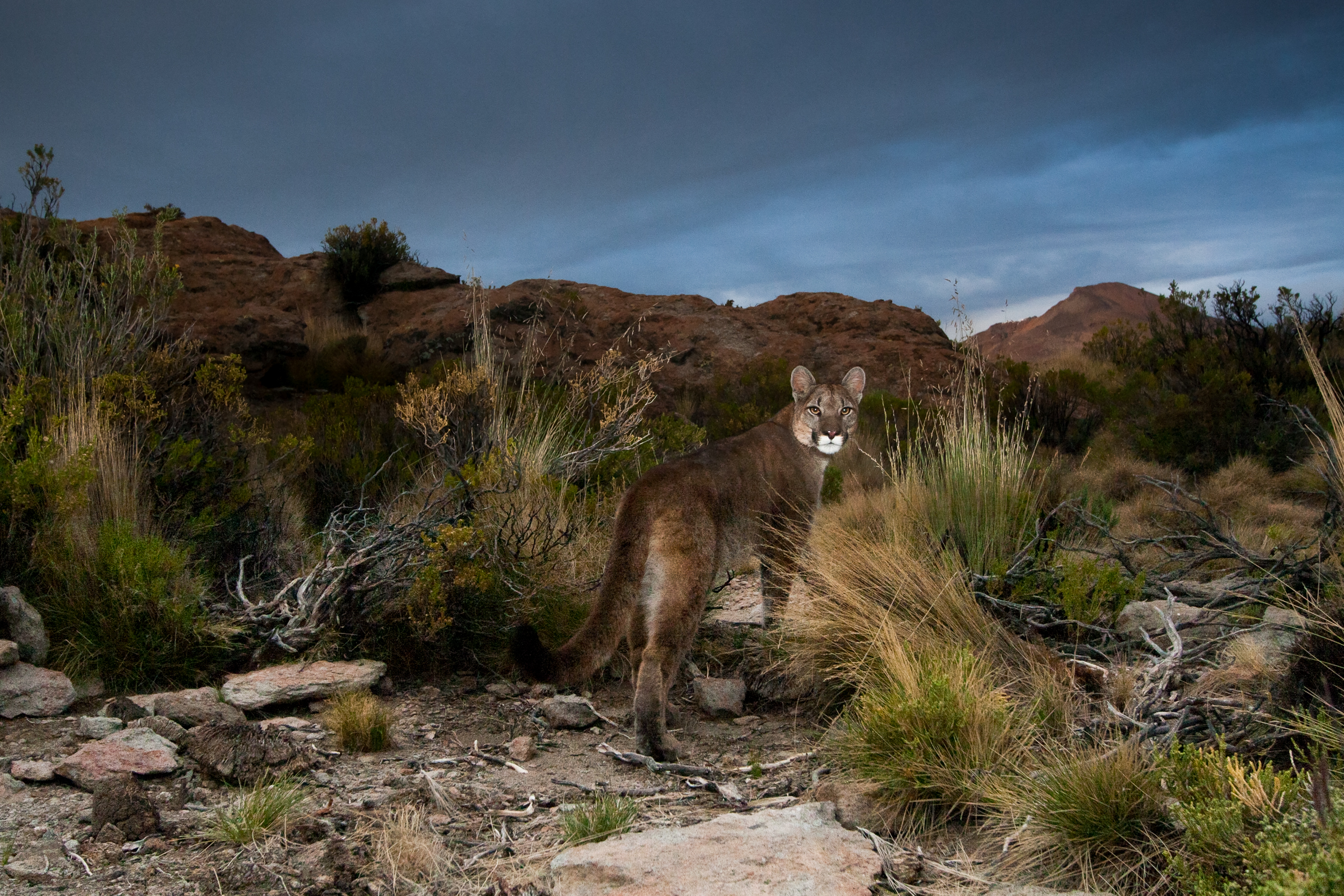 The Mountain Lion Foundation’s Board and staff mourn the passing of author Barry Lopez, a literary lion, friend to lions, and defender of nature. Barry played a unique role in the history and mission of the Mountain Lion Foundation, having lent his esteemed name to our Honorary Board since the Foundation’s inception in 1986.
The Mountain Lion Foundation’s Board and staff mourn the passing of author Barry Lopez, a literary lion, friend to lions, and defender of nature. Barry played a unique role in the history and mission of the Mountain Lion Foundation, having lent his esteemed name to our Honorary Board since the Foundation’s inception in 1986.
Valuing his contribution as we did, we were honored to know that he too felt pride in the length of time he’d served in this capacity. He wanted to highlight the longevity of our relationship as he worked with us last summer to prepare a special fundraiser for the Foundation. Living with stage four cancer, he was still vibrant and writing daily, though he expressed a sense of urgency to devote the remainder of his career to elevating the cause of the wild animals.
“We refer to them as wild,” he said of mountain lions and other native species, “but many are not truly wild, because they are not free to live their lives as they choose. They are besieged by human cruelty and indifference, and they must cope every day with the destruction of their homelands.” He was preparing to offer a personally inscribed copy of his latest work, Horizon, to donors who made a significant gift to help the Mountain Lion Foundation protect mountain lions and their homelands.
Sadly, as we prepared to unveil the fundraiser, on Labor Day Barry and his wife and cat had to flee their home in Oregon’s pristine McKenzie River wilderness area. A wildfire raged through, sparing his house but destroying his archives and original manuscripts. He wrote on social media that the acres of wilderness he’d lovingly preserved for decades now looked “flayed.” He and his family relocated to nearby Eugene, Oregon, and began plans to restore their beloved property, but his health deteriorated.
He died December 25, 2020, surrounded by his wife and four daughters.
We will remember his compassion and generosity. In every interaction, he graced us with his distinctive kindness, thoughtfulness, and profound reverence for the lives of wild animals.
Even in casual conversation, he spoke as eloquently as he wrote, often expressing a deeply felt empathy for his wild neighbors. Fully aware that he lived in cougar habitat, he long hoped to observe one on his property. When a naturalist visited the property last summer, he told Barry he’d sensed the presence of a cougar and believed a cat had curiously observed him as he explored the forest. Asked whether he was slightly envious of the visitor’s luck, Barry said no. Animals aren’t obligated to present themselves to us for our edification, he said, but they do sometimes allow us to see them so we’ll have sympathy for their plight.
He told our staff member and fellow Oregonian Michelle Blake of one such encounter with a gathering of elk on his property. As he walked the mulched path to his writing studio, the elk stood nearby, alert, observing him. A matriarch stood protectively at the front of the herd. She looked directly in his eyes and conveyed to him that she and her kin could no longer protect themselves and their homes from human interference. “What are you going to do about it?” she asked.
We all know that Barry spent his lifetime doing something about it, and it speaks to his tirelessness and sincerity that he continued this work through his final days. We are humbled and grateful to have shared in that work, and especially to have benefitted from his kind support of our mission over the span of these decades.
Our thoughts are with his family and dear friends as they process this profound loss. We know we speak for many others when we say that all of us at the Mountain Lion Foundation will continue to honor and elevate Barry’s legacy of kindness, conservation, and reverence for our wild neighbors. We will work for the day when all of America’s lions can truly call themselves wild and free, knowing their lives and their habitats are safe.
About Barry Lopez:
Barry Lopez authored sixteen books of fiction and nonfiction. He received many awards and honors, including the National Book Award, the John Burroughs Medal for natural history writing, the Orion Society’s John Hay Medal for lifetime achievement, and the Christopher Medal for humanitarian writing. He was a member of the American Academy of Arts and Letters.
Horizon, published March 19, 2019, details his journeys to six places on the planet: the Oregon coast, the High Arctic, The Galápagos Islands, West Africa, Tasmania, and the interior of Antarctica. Within those journeys he reckons with human calamity and the broken, yet still beautiful, world we are about to leave to today’s young and the generations to come. He chronicles his own travels and at some points in the book walks a path with his younger self. Compelling as these travels are, we soon discover that the true hero of Horizon is our “throttled” Earth, as he calls it. In offering us an exhilarating masterpiece for a broken world, he evokes a future we can still achieve and shows us lessons from the past that point the way.
Photo credit: John Clark



 Facebook
Facebook Twitter
Twitter Send Email
Send Email

